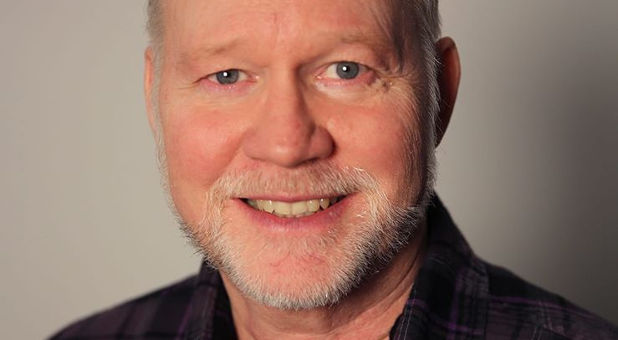The second lie is also the result of the defilement we feel upon being tempted in such a perverse way. In this case, however, the battle is between belief and unbelief, i.e., what is objectively true as revealed by God vs. what we feel to be true. This is often a battle royal. Are we going to return to our former identity and/or way of life or are we going to embrace the new creation that the Scriptures proclaim we now are (Rom. 6:5-14; 2 Cor. 5:17; 6:16; Eph. 4:24; Col. 3:5-10; 1 John 3:1-3) even while our bodies are screaming at us that it is not true?
How Change Happens
Let’s examine what change looks like for the believer. The picture varies widely because each former homosexual is at a different stage in their healing/sanctification process. Additionally, some are more committed to it than others, some started late and have more issues to deal with, some have lived a more perverse life than others, some a more broken life. And some have more faith, more love for God and/or a better support system around them.
Essentially, however, it begins at the point of being born again, when a newfound desire to love Jesus through obedience arises in our hearts (John 3:3,5-8,12-21; 14:15,21,23-24; 2 Cor. 5:14-15; 7:1,10).
God begins to work in us the desire to do His will (Phil. 2:12-13; 2 Cor. 1:21; 3:5-6; 4:7). And as long as we remain committed to the process and pursue God for the revelation and the power necessary for transformation, we progress in wholeness and Christlikeness. Some days it’s two steps forward and one step back, but overall, as one author put it, it is “a long obedience in the same direction.”
A change of behavior …
This is normally the first to appear. The Holy Spirit brings conviction of sin, we confess it and renounce our love for it (Prov. 28:13; 2 Cor. 4:2), seek Him for the power over it (Ps. 37:23; 55:22; 1 Pet. 1:5; Jude 24), receive that empowerment by faith (Rom. 1:5) and then turn away from the idolatrous behavior (Rom. 1:25). From a growing love for God, forged while in His presence, we position our heart against that which put Him on the Cross, renounce it and consider it no longer an option (Rom. 6:11-18; 8:12-14; Gal. 2:20).
For most believers, permanently leaving homosexual behavior occurs immediately at salvation. For some who do not know the Scriptures, it may take some days or weeks for the love and kindness of God (Rom. 2:4; 2 Cor. 5:14) and the conviction of the Holy Spirit to lead them to repentance (2 Cor. 7:10). Others may lack a facility in appropriating the power of God over temptation, or may have demonic strongholds yet unknown, or lack the spiritual knowledge for how to remove them. For these, there may be an initial renouncing of the sin but, in a moment of weakness, a temporary return to it. Eventually, however, they are won by God’s grace (Titus 2:11-14), taught by Him, empowered by Him and renounce it for good.
Those who do not experience the conviction of the Holy Spirit, however, are not yet saved. They may have had an experience of God or “said the magic prayer,” but have not yet come to know Him through saving faith, which is faith that produces new life as a result of the indwelling work of the Holy Spirit (James 2:14-24; 1 John 2:3-6; 3:6,24; 5:4).
A change of beliefs …
Operating alongside a change of behavior in the transformation of the former homosexual is a change in beliefs. We embrace God as the One who loves us, who has our best in mind and who is worthy of our obedience. We exchange false beliefs about Him (as well as false beliefs about ourselves) for the truth revealed in God’s Word.
Whereas we used to believe that we were unforgiveable, unredeemable and unlovable, the truth revealed by the Scriptures and the presence of God—the Word made flesh (John 1:1,14)—exposes those beliefs as the lies that they are. As a result, we are persuaded to embrace our true selves—regenerated and adopted (Eph. 1:3-8), dearly beloved children of God (1 John 3:1-3) who no longer bear likeness or give allegiance to the world and its god, the devil (John 15:18-19; 1 Pet. 2:9-11; Rev. 5:10).
Our former love for the world is now fading away (1 John 2:15-17), and we seek to conform our beliefs in all things according to God’s Word, whether we understand them or not and whether He removes those things that tempt us or not. Oswald Chambers once wrote that “the core of all sin is the doubt that God is really good.” We now choose to believe He is good based on His demonstrated love for us on the Cross of Calvary.
A change of identity …
Because our beliefs have changed, we undergo a change of identity. We now see homosexuality as the lie that it is—an idol and a pitiful substitute for unmet need. We also recognize the concept of “gay Christian” as the same distortion of reality and reject it. No longer do we allow our history, our feelings or our temptations to tell us who we are (1 Cor. 6:11; 2 Cor. 4:18; 5:7; 6:16; 10:4-6).











































